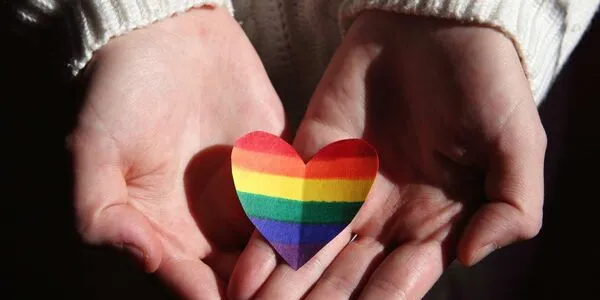
🌈What's Your Gay Meter?🏳️🌈🌈
In today's world, the LGBTQ+ community is comprised of a wide range of sexual orientations, gender identities, and expressions, including gay, lesbian, bisexual, pansexual, queer, asexual, and more. Curious about where you fit on the "Queer Index"? This is a fun and easy way to explore and reflect on your sexual orientation, fluidity, and openness. No labels necessary, but sometimes it's nice to get to know yourself better, right? This quiz is designed to give you a deeper understanding of your preferences and identity while having fun!
1. How do you like your coffee?

2. How often do you enjoy nightlife (bars, clubs, parties)?

3. Have you ever had a crush on someone of the same sex?

4. How would you react if a friend came out?
5. Do you often talk about gay topics?

6. When you think about relationships, how important is sexual orientation in choosing a partner?

Are you a confident, out, and proud LGBTQ+ representative, or a low-key, reserved, and secretive queer representative? Whether you identify as gay, bisexual, pansexual, or any other vibrant identity within the queer community, this test will celebrate your unique qualities and authentic self!
The Complexity of Sexuality
Sexual orientation isn't just a number on a dial. Most researchers and activists believe it's fluid, multifaceted, and deeply personal.
In the 1940s, sexologist Alfred Kinsey developed the famous Kinsey Scale, which categorizes sexual orientation on a scale from 0 (exclusively heterosexual) to 6 (exclusively homosexual). His research showed that most people's sexual orientation falls somewhere in between.
Later, models like Klein's Sexual Orientation Grid added more dimensions: sexual fantasies, emotional preferences, social preferences, and identity that changes over time.
Modern psychology also recognizes that sexual orientation is not static. It can change over a lifetime, and many people identify as bisexual, pansexual, queer, or diverse, rather than just gay or straight.
LGBTQ Pride Month
Lesbian, gay, bisexual, transgender, and queer (LGBTQ) Pride Month is currently celebrated each June. In the United States, Pride was originally celebrated on the last Sunday in June, although the date varies. Subsequently, cities across the country expanded Pride Day into a month-long series of events. Today, celebrations include pride parades, picnics, parties, workshops, seminars, and concerts, with LGBTQ Pride Month attracting millions of participants worldwide. The month is dedicated to recognizing the impact of lesbian, gay, bisexual, and transgender people on local, national, and international history.
A Brief History
In the early 1950s and 1960s, homosexuality was considered pathological and was criminalized. "Measuring" a person's homosexuality often meant police raids, mandatory psychiatric testing, or humiliating interrogations.
Modern homosexuality tests, by contrast, have upended tradition. They turn measurement into comedy, stigma into self-mockery, and fear into pride.
This transformation didn't happen overnight. It took decades of activism, Pride parades, legal battles, and cultural change for queer people to feel safe enough to laugh at themselves.
But hey, don't feel pressured to fit into a box. Sexual orientation is fluid; it's all about how you feel today, tomorrow, or at any given moment. This test won't define who you are, but it will offer a fun and thoughtful look at how you see yourself, your comfort with different identities, and where you fall on the sexual orientation scale. There are no right or wrong answers, just honest reflection! Whether you're already confident in your identity or just curious to explore, let's dive in and enjoy the process. Ready? Let's get started!


